Only by upholding the empowerment of women and girls can Small Island Developing States rise to the serious challenges they face
Date:
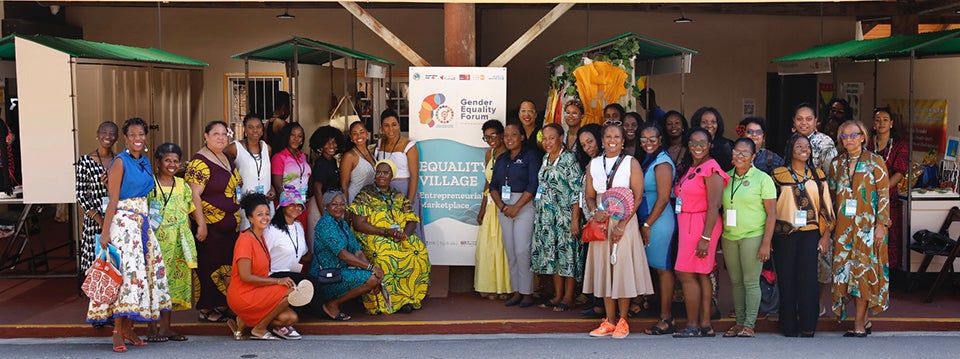
While women are more at risk of the impacts of climate change and disasters than men, they are also positive agents of innovative solutions for resilience futures in Small Island Developing States (SIDS), futures where both nature and people can thrive.
Across the world and the SIDS, women depend more on, yet have less access to resources. Women are employed in sectors with high vulnerability to disasters and climate change, concentrated in tourism-related services and sales sectors, making them more exposed to economic shocks during and after the crisis than men, whose employment is more diversified.
Women and girls are also more at risk for gender-based violence –including sexual violence– in the aftermath of hazards and carry the greater care burden of unpaid care work. Unleashing the power of women as first responders to crisis, disaster risk reduction, and building economic and environmental resilience is crucial to achieving sustainable development.
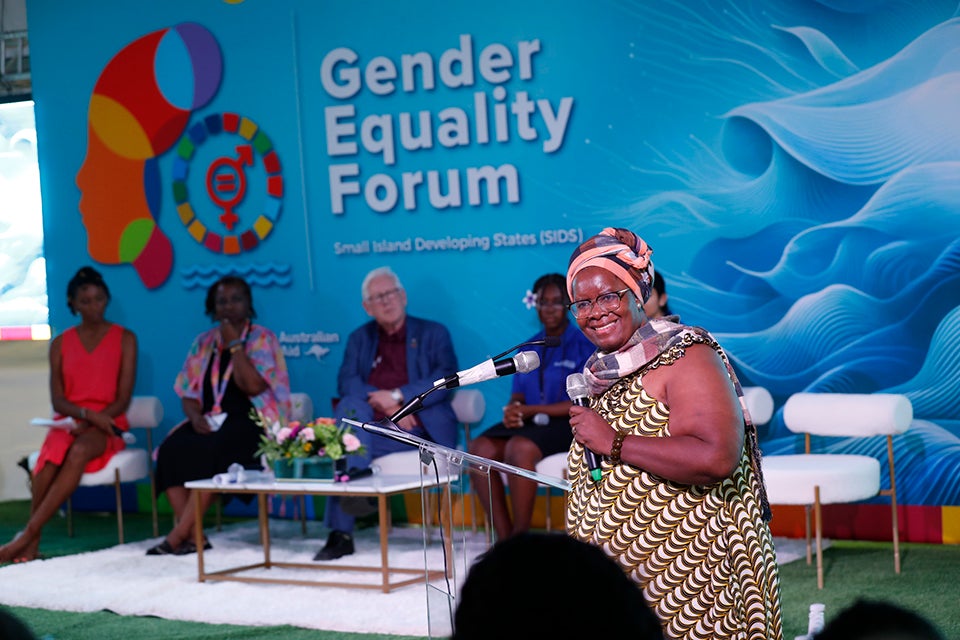
For this reason, the Gender Equality Forum was led by UN Women and the Caribbean Development Bank, and co-hosted by the Government of Antigua and Barbuda from 25 to 26 May, ahead of the fourth International Conference on SIDS (SIDS4) drawing on women as positive agents of change for resilient futures and highlighting the need for resources and funding for gender equality and SDG5.
The Gender Equality Forum brought together world leaders from diverse backgrounds, representatives of civil society, the private sector, and academia, to discuss issues of crucial relevance. UN Women led and promoted conversations on climate resilience and investing in women as first responders to climate crisis; just financing; linkages between climate, gender, and racial justice; the role of digital art in SIDS; and the need for the protection of women human rights defenders, to nurture the upcoming decennial programme of action for SIDS to achieve sustainable development. A summary of the Gender Equality Forum was reported by civil society member Meghan Theobalds of the Equality Fund at the end of the SIDS conference on 30 May, during the Moment of Declaration.
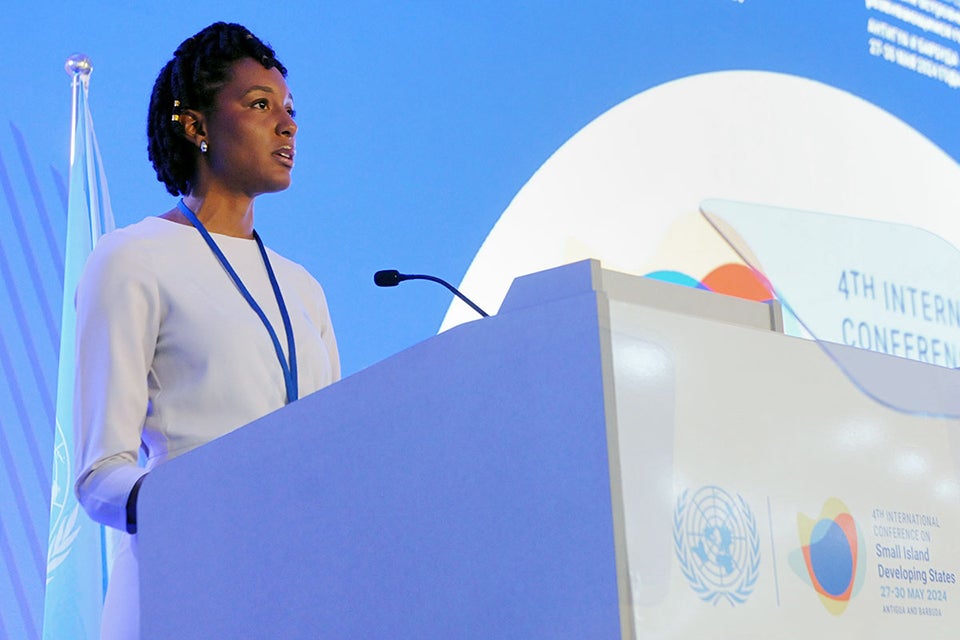
The Outcome Document of the SIDS conference, The Antigua and Barbuda Agenda for SIDS (ABAS) – a Renewed Declaration for Resilient Prosperity, sets a new standard for women’s participation, civil society involvement, youth engagement, and private sector contributions for partnerships for climate action, participation, and disaster risk reduction.
The timeliness and ambition of the ABAS to effectively respond to multiple crises facing their nations, including the shared existential crises of environmental degradation and climate change is highlighted by the elevation of gender equality across many key aspects, including:
-
Reaffirm the importance of freedom, peace and security, respect for all human rights, including the right to development and the right to an adequate standard of living, including the right to food, the rule of law, gender equality, women’s empowerment, reducing inequalities and the overall commitment to just and democratic societies for development;
-
Recognize that gender equality and women’s empowerment and the full realization of human rights for women and girls have a transformative and multiplier effect on sustainable development and are a driver of economic growth in small island developing States. Women can be powerful agents of change;
-
Remain concerned that poverty, including extreme poverty, unemployment, inequality and exclusion continue to disproportionately affect people in vulnerable situations, particularly women, children, youth, persons with disabilities and older persons, reduces the potential productive capacities in SIDS. These challenges are compounded by youth unemployment, loss of skilled and semi-skilled labour, through labour mobility, and gender inequality, including unpaid care and domestic work;
-
Achieve gender equality, empower youth and leave no one behind by: Promoting and protecting the full realization of the human rights of all women and girls, and eliminating all forms of discrimination and of violence against all women and girls; Increasing women’s leadership, and promoting their full, equal, and meaningful participation and representation at all stages and levels of decision-making processes; Meaningfully involving youth in decision-making processes as appropriate; Promoting and protecting the full realization of the human rights of persons with disabilities; Strengthening adaptive social protection systems and expanding coverage of national social protection programs; Investing in developing the skills of and fostering opportunities to pursue alternative livelihoods for communities displaced by disasters; Supporting the advancement of sports as an important enabler of sustainable development, including for its growing contribution to the realization of development and peace.
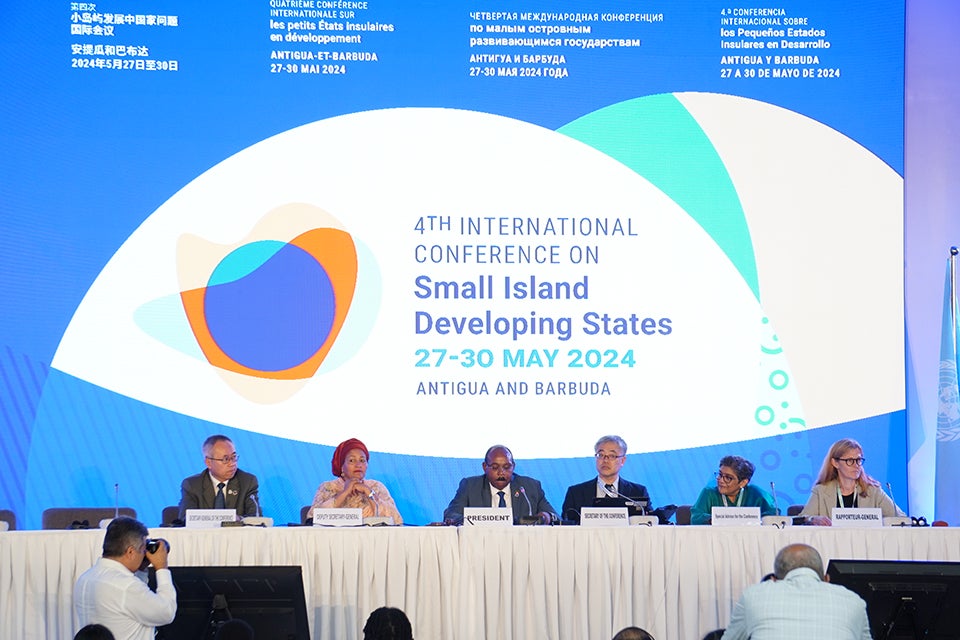
The comprehensive approach to enabling the full, equal, meaningful, and effective participation of women in decision-making is crucial to achieving sustainable development while addressing gender inequalities, economic and social empowerment, and the right of women and girls to a life free of violence. On average 46% of women in the Caribbean have experienced at least 1 form of violence in their lifetime. (Caribbean Women Count).
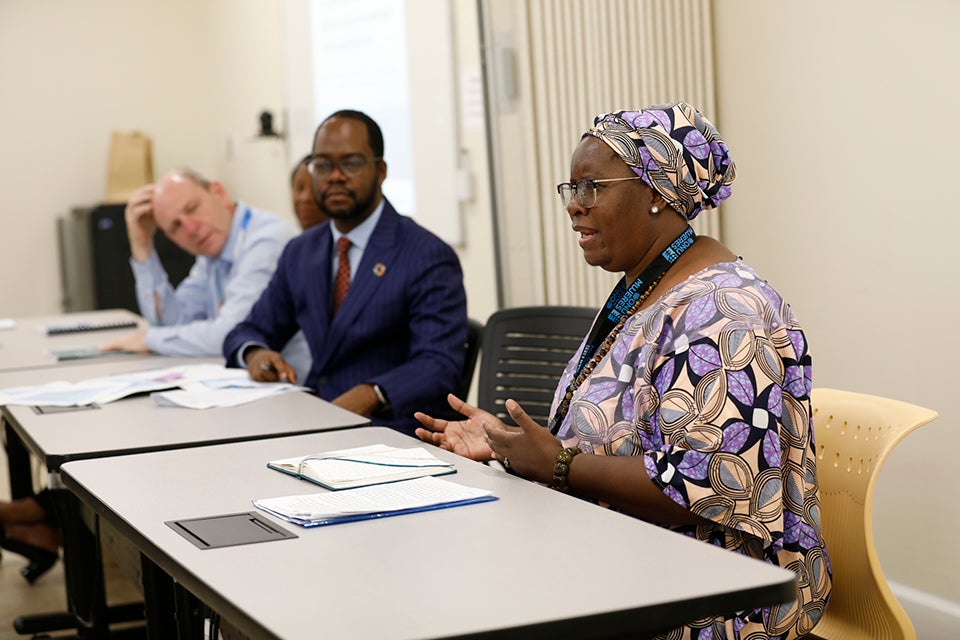
“Countries must build on this agreement to ensure that women lead the development and implementation of policies on all topics, from climate change to economic development,” said UN Women Deputy Executive Director Nyaradzayi Gumbonzvanda, who attended the conference. “Only by upholding gender equality and the empowerment of women and girls can SIDS rise to the serious challenges they face.”
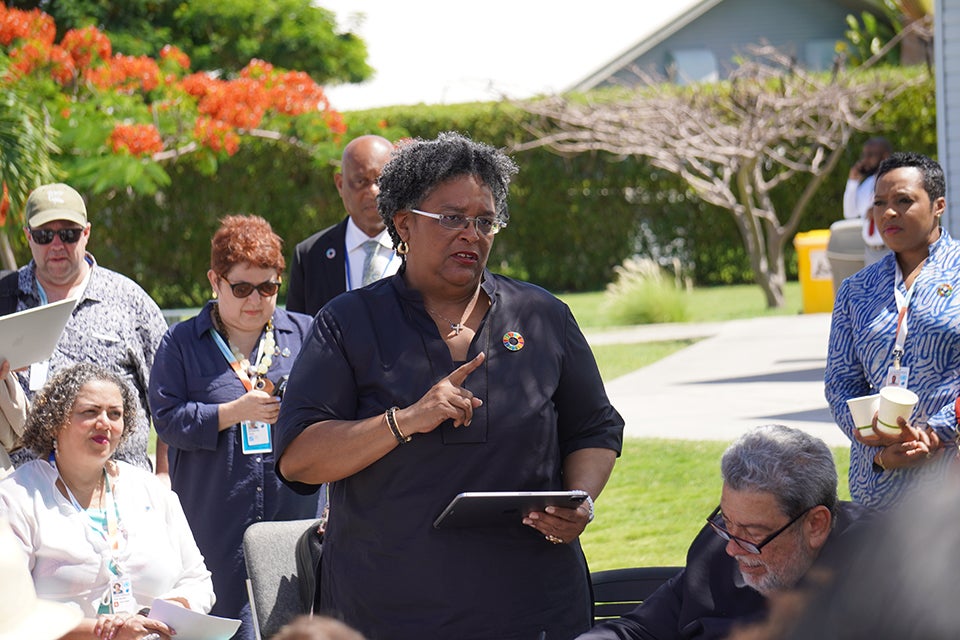
SIDS has benefited from women Heads of State and Government; however, the SIDS regions have not yet met the critical mass of 30% representation of women in parliaments and peace processes. Women's voices in peace processes and transitions remained undervalued and underrepresented, and women were often excluded from decision-making spaces.
“It is less costly to invest in peace, than the cost to rebuilding when our nations suffer destruction. So as women, in the wake of women’s rights, on peace and security, we must invest in Resolution 1325, we must build communities of peace, because those communities are more resilient. We are much more at risk if there’s a crisis or a conflict. Being in SIDS, being in this region, we also continue to ask to step up, all of us for Haiti”, said Ms Gumbonzvanda.
“Building and strengthening women-led community systems is crucial. Women will always be there: before the crisis, during the response, and throughout the reconstruction of their communities. When everyone else has left -even humanitarian agencies - they remain in their communities. Therefore, we must invest in women-led community systems of resilience and response, that include women and girls, and their organizations”, underscored Ms. Gumbonzvanda.
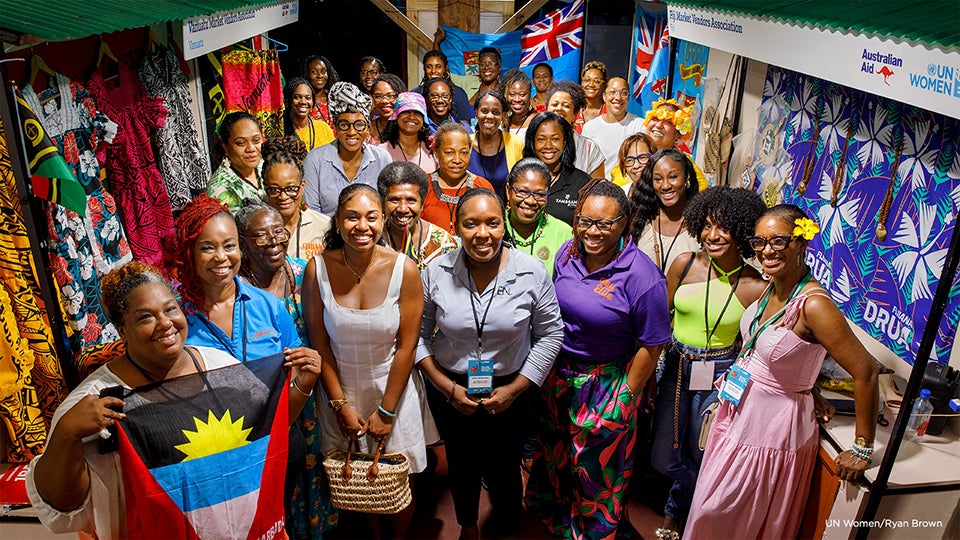
The road to the 69th session of the Commission on the Status of Women, the 30th anniversary of the Beijing Platform for Action, and beyond, must also be strongly integrated with a gender-transformative SIDS programme of action that includes response and recovery as pillars for resilience. The priorities identified should also inform the Summit of the Future in September and the COP29 in November 2024, the Fourth International Conference on Financing for Development in June 2025, the World Summit for Social Development, and other regional and international processes, fostering alliances and strategic partnerships within the humanitarian and development international community for peace, community and resilience building.
“SIDS is not about being small, it’s about being significant. It’s an essential discussion about people and planet over profit”. She concluded.